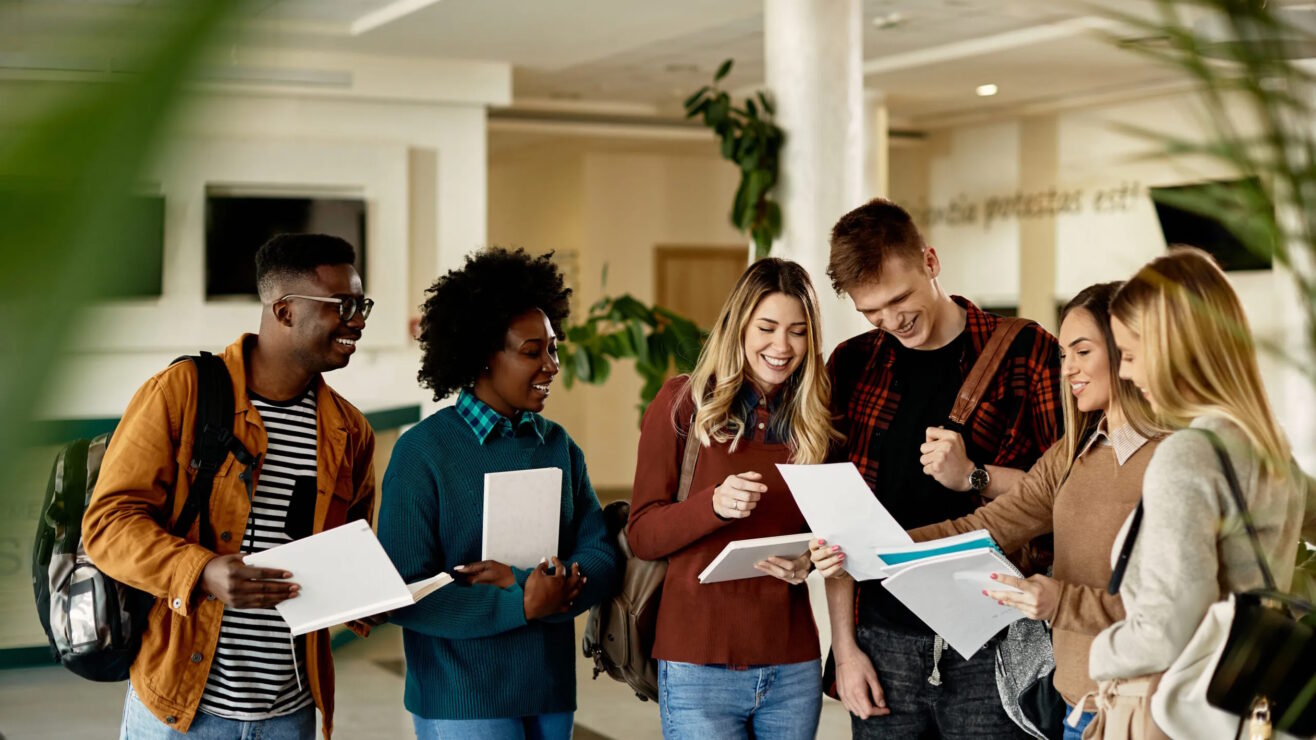This year’s elections season has been characterised by nail-biting worry for most SUs across the sector.
It is clear that the impact of the pandemic on the student experience has led students to be warier of taking up leadership roles, with the student journey not seeming as secure and predictable as it once was.
We have a generation of students who haven’t interacted with their SUs in ways that we could be confident would teach them about their SU and its impact – spending time in the SU, interacting with officers, going to society and SU-led events. For many, this election season has been a big leap into the unknown.
At the University of Manchester Students’ Union, this was compounded by the completion of our democracy review – an internal project which looked at everything from our part-time officer makeup to the way policies are created.
After a referendum in October, we were left with a brand-new decision-making structure, eight new full-time officer roles and associations, and a system for integrating student voice that replaced traditional part-time officers entirely.
Would students understand the new roles? Would they care about the changes that we made, including removing the full-time Women’s Officer? Yet despite our worries, we’re not the type of organisation to play it safe. And I’m pleased to say that we turned an appetite for risk into 6850 voters.
Democracy review
Over a 6-month period we consulted over 600 students, over 20 SU and university staff and two years’ worth of full-time officer teams. We ran a campus-wide survey, held one-to-one interviews, held structured group discussions, paid PGR students to conduct desk research, and held co-creation groups with student leaders. From our research, we found that two main themes emerged.
Manchester students are passionate about the issues that affect their student experience – value for money, tuition fees, mental health and wellbeing and online learning are the top issues and causes respondents think the SU should be acting on.
And being part of a community is really important to our students – when we asked respondents about their Manchester identity and values, 74.9% mainly identified with their course, 56.7% with their school and 59.8% with their faculty.
Given the outcomes of our research, our first set of new roles was designed around student priorities. We split our Education Officer role into three faculty roles to reflect the importance our students put on their education as a part of their experience at Manchester, added a new City and Community officer with issues such as sustainability and student housing in their portfolio, and set up ten autonomous student Associations who would be empowered to campaign on the issues that matter to their constituency.
Our second set was structured around community-building – recognising the findings that our student groups, halls and volunteering groups contribute heavily to a sense of belonging through the SU. This proposal cut our officer team down to six, freeing up budget to pay ten organisers who would run collectives for their constituent groups, focused on using community organising tactics to make grassroots change.
Option number one won the subsequent referendum by a landslide, giving us a mandate and a direction for the SU’s new democratic structure – that we should focus our work on the issues that students care about.
With this in mind, our key messages were set. Students had told us what resonated with them, so we were able to develop communications that really stuck. Students were asked if they were “hungry for change” and told that through a role they could make the city theirs – and after two years of students being told they were responsible for a pandemic and that they weren’t going to get the university experience they were promised, these messages clearly struck a chord.
Rebrand
This year we ditched the elections brand we had been using for years in favour of something that reflected the changing priorities of our student body: a new campaign called LeadMCR, led by our Marketing and Communication team.
The concept for the elections rebrand was borne out of a desire to bring relevance to the elections and encourage students to feel that getting involved is an integral part of their university experience. We wanted the look and feel to be mature, stripped back and using imagery relating to activism – a priority for the students Manchester, who have historically been highly political.
We took inspiration from event posters seen around the city with the view to align with an aesthetic that was already resonating with students.
GOATing
As a sector we know that one-to-one conversations with students are the best to find out who they are, what they think and to tell them what we’ve got going on. We threw our energy into just that this election season, developing a full-on tour schedule that put both career and student staff around campus throughout the voting period.
Manchester University is split into our main campus on Oxford Road and a “North Campus” further into the city. We usually struggle with engagement from students who mainly study on the latter, so our physical presence there was key to show students that their SU isn’t just there for them in the building itself.
North Campus was also in a period of transition, getting ready to be decommissioned and its activities moving into a brand-new purpose-built building, MECD. We leant in to this, stationing student staff there to go out and talk about the new roles in a new space. This gave the GOATing a gloss of innovation – a totally new thing in a new space, ready for students to get involved.
We armed staff with a discussion guide that re-iterated our key messages and gave stock answers to frequently asked questions, so that we could present a strong, united message to students. We had hundreds of face-to-face conversations with students over the four days, which as well as translating into voters, gave us valuable data about where students are and when, that we can use in future campaigns.
As well as fanning out from the building, we encouraged students to come to us through offering insta-worthy experiential activities. Our slushie machines and pick-n-mix stalls got students all gathered in one place, presenting a convenient opportunity to them to vote while they waited in line.
Incentives
Yes – we offered incentives. There was a debate in the elections working group as to whether we were an SU that offered incentives to vote, about what this meant for the democratic culture of the union and what it would do to the mandate that Officers have in their negotiations with high-level stakeholders.
However, we came to the conclusion that in this unique period of time, we needed to go all-out with voter engagement, including trying tactics we’ve never tried before. We’d recently switched our content management to the SUMS platform, so we offered a £1000 prize draw if students cast their vote via the SU app, as well as promising to plant a tree for every 10 voters. Unsurprisingly, it was the prize that caught students’ attention the most.
The incentive was a useful talking point when we went out and spoke to students, as well as giving candidates another call to action when they were campaigning as they were able to include the QR code for the download on their posters and flyers. The draw also helped drive conversations about elections between students, as we could see them buzzing about it on their student social media groups. It got the attention of influential student meme pages, making the conversation on taking part in LeadMCR more student-led and organic.
Teamwork
Tactics and graphics and prizes are one thing, but the most important thing in this election that led to its success was the collaboration and passion shown by the staff team. The building was transformed with LeadMCR graphics and students’ own handmade posters and banners, building enthusiasm to pitch in and get involved, and ensuring every staff member felt as though they had a stake in the success of the elections.
We encouraged staff to use their own channels and networks to encourage students to vote by personalising the messaging, and gave teams the freedom to be creative with their ideas; the Societies team developed a monster spreadsheet identifying the most-engaged student groups and personally went to their evening events, and the Education team connected elections with the academic experience in their weekly student rep newsletter.
Elections were palpably an organisation-wide effort this year. The engagement of the staff team was the key to ensuring the risks we took paid dividends.
We were also supported by university teams who were keen to be reached out to and to spread the message to students. This helped us get to corners of campus our channels might not reach, from university student comms through to residence comms. Students being able to see that the university was on side and that they thought that it was just as important to get involved as we did helped lend legitimacy to our messages.
Conclusion
A combination of a brand-new offering, a rebrand, a focus on individual interactions with students, strategic incentives and a great team effort has led to the University of Manchester Students’ Union bouncing back from pandemic-induced engagement troubles.
Going forward, we’ll be focusing on further analysing what went well and what we could have done better so we can hold ourselves to an even higher standard next year.
22/23 holds a lot of uncertainty for us – new Officer portfolios, the development of a new strategy, a new Diversity and Inclusion staff team and numerous other changes we’ve got planned – but we’ve shown ourselves that we can face new challenges head-on and turn them into successes.


















